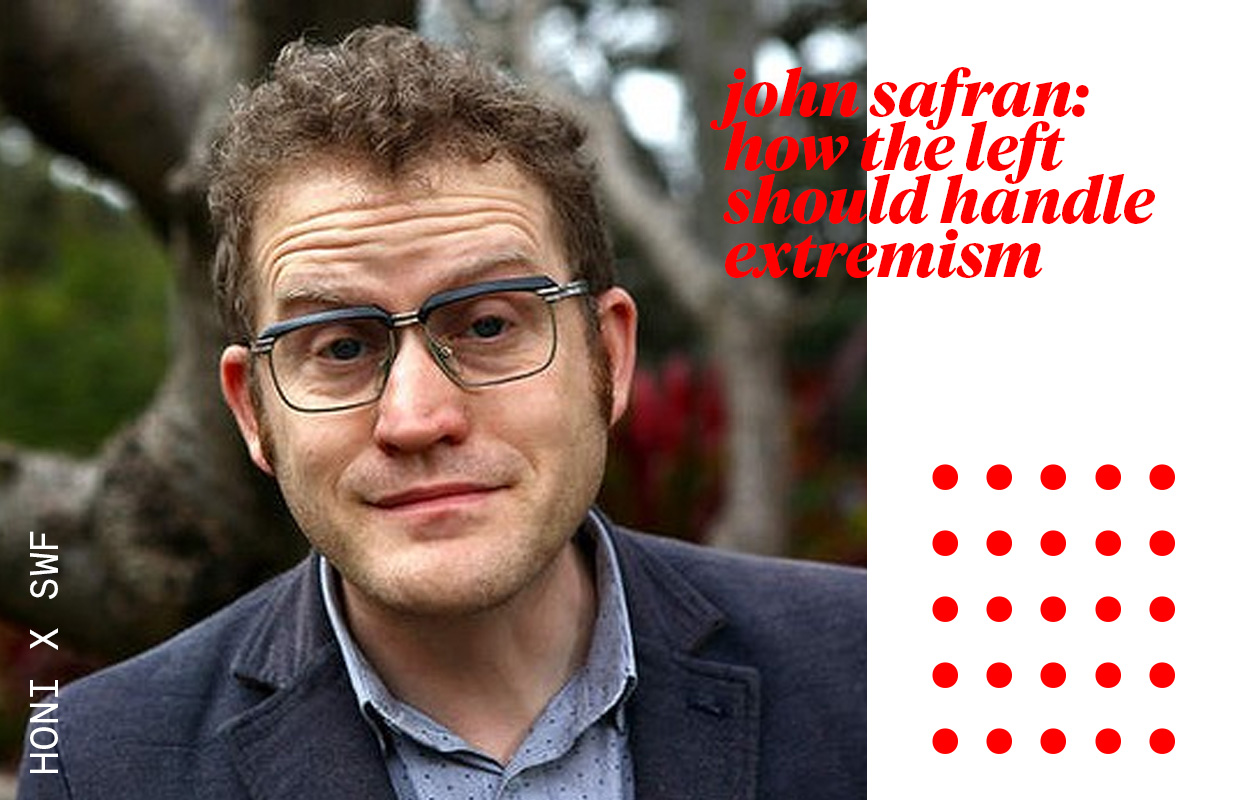Australia’s most renowned comedic documentarian returns with a look into zealotry in our country that asks more questions than it answers
This piece is from our coverage of Sydney Writers’ Festival this year. To check out the rest, click here.
Throughout his career, on projects like John Safran vs God and Race Relations, John Safran has been taking a hands-on approach to researching religion in Australia and around the world. His latest work, Depends What You Mean By Extremist, continues this tradition. But in studying a subject as troublesome and pertinent as Islamophobia and Islamic fundamentalism, Safran confronts an image of the far right extremism which is more complex than most of us give it credit for, and what this means for the dynamics of Australian religion going forward.
HS: What I’ve been telling people about your book is that this isn’t the book you’d expect to read about extremists in Australia. There are all these atypical portraits you’re painting of people on all sides of the spectrum — of right-wing nationalists with diverse, multicultural backgrounds, like Pastor Daniel Nalliah, and also of one particular white, Monty Python-loving ISIS supporter. So what did you learn from these differences between expectation and reality? And do you think the way progressive people look at extremists has to change?
JS: I think the way the archetypical left wing pinko thinks has to change. So in the case of radical Muslims like the ones who want to go and join ISIS, for them they’re under the spell of religion. They believe this book is saying they need to go over and fight because they’re on the cusp of the Muslim messianic age. So for these very radical ISIS dudes, for them, they’re looking at things through a religious lens. Then when you’re coming to non-dangerous devout people, for example, devout Muslims, they look at their life through a religious lens. They believe in magic, basically, and they’re doing that through a religious lens. And then you have these people on the far right with really bad agendas and they want to stir up trouble, and they’ll start going “look at these violent passages,” or whatever.
Read the full article by Aidan Molins at Honi Soit.

